As a homeowner, your driveway is probably one of the last places you’d expect to have to do maintenance. Your driveway is supposed to be a solid, durable spot to park your vehicles and forget about them. For many homeowners across America, however, that’s not the reality.
Depending on what your driveway is made of, what kind of traffic it sees, the local weather, temperature fluctuations, and more, your driveway can end up taking a significant amount of abuse within a short timeframe. This can lead to having to spend money on maintenance multiple times throughout the lifetime of your driveway, which can be costly, especially if you have a concrete or asphalt driveway.
Low-Maintenance Driveway Options
Thankfully, there are many options out there when it comes to low-maintenance driveways. If you’re looking to install a new driveway or replace your old one, let’s break down some of the most popular types of low-maintenance driveways on the market today:
1. Paving Stones
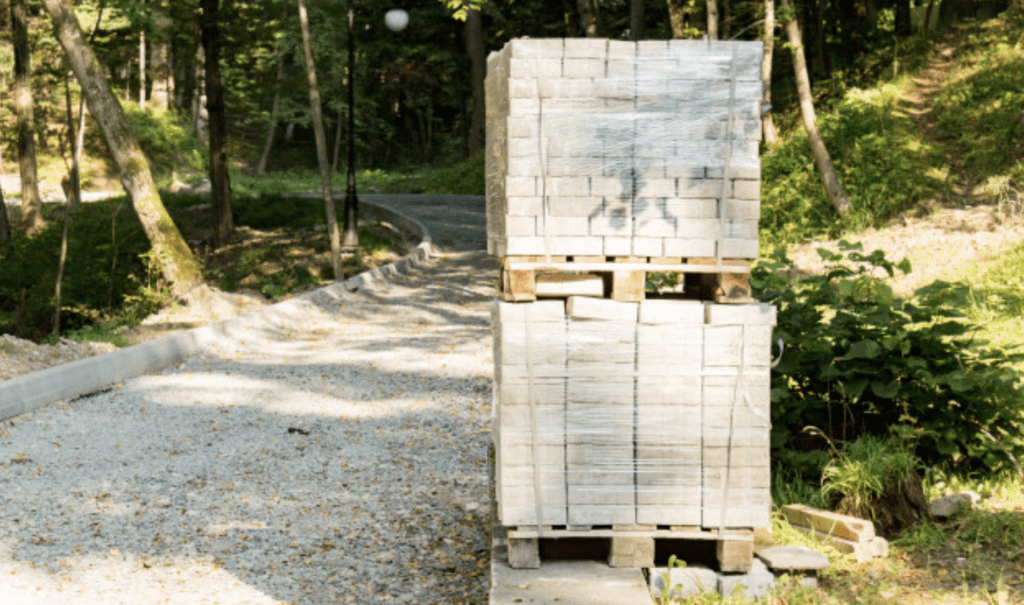
Paving stones are known to last up to a full century if properly laid. A paving stone driveway possesses a ton of other benefits as well, especially if coupled with permeable paving. Paving stone driveways tend to be sourced from different quarries around the globe, making them much more eco-friendly than other common driveway materials like asphalt and concrete.
A paving stone driveway can be laid with either concrete or some type of permeable material in between the stones. Both versions will last you a long time, but only driveways with permeable material in them will be able to handle drainage needs as well. You can even have a heating system installed beneath your paving stone driveway if you live in an area with a lot of snow and ice.
One of the main drawbacks of a paving stone driveway is the sheer amount of time and effort it takes to install. If you aren’t doing all that hard work yourself, you’ll be paying someone else a pretty penny to do it for you.
2. Concrete Grass Pavers
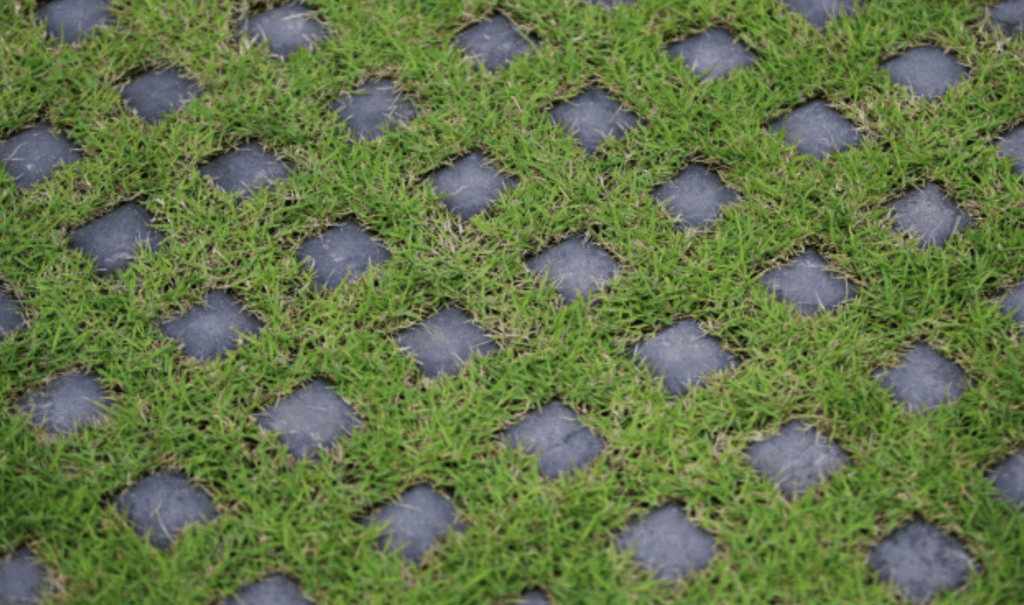
An interlocking concrete grass paver driveway made may be an option for your driveway. Filled with small square holes in which you can see the underlying grass or soil, grass pavers allow water to pass through unencumbered. This is an eco-friendly feature that prevents driveway flooding for you and prevents your local water systems from being polluted with extra runoff from heavy rainfall.
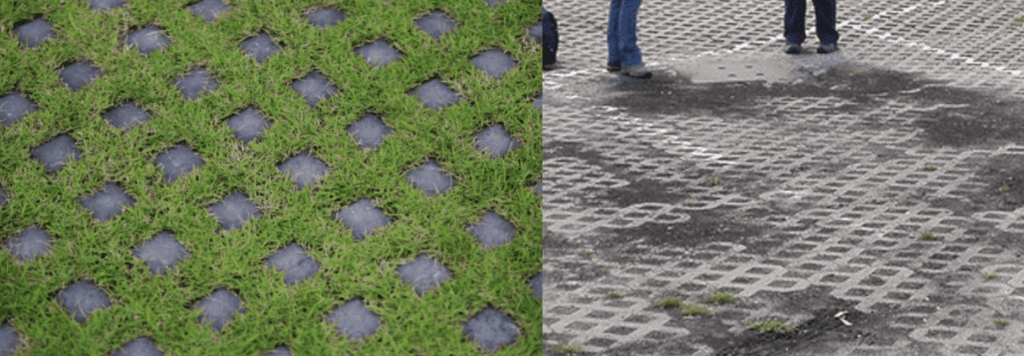
These types of interlocking concrete grass pavers can be relatively expensive and they do take a bit of time and effort to install. One of the biggest drawbacks of grass pavers is that, although the spaces in between the concrete allow water to pass, they also allow weeds and other pesky plants to pop up. And they clog easily as the grass tends to get choked off and die. This increases the maintenance level of a grass concrete paver driveway because you’ll have to do some pruning whenever the weeds pop up or frequent reseeding.
3. Plastic Permeable Pavers

Of all the options on the list, permeable pavers are by far the lowest maintenance and sometimes the lowest cost. This in no way means that they are the lowest quality driveway material, however. Permeable pavers like the kind made by TRUEGRID are made in the U.S.A. from 100% post-consumer recycled plastic and are known to outlast both asphalt and concrete.
Because they are made from plastic and can be filled with grass or gravel, they require almost zero maintenance and can last as long as a paved stone driveway. They are much easier to install than paving stones, yet can actually be laid in tandem with paved stones, brick, gravel, plain grass, or almost any other material you can think of.
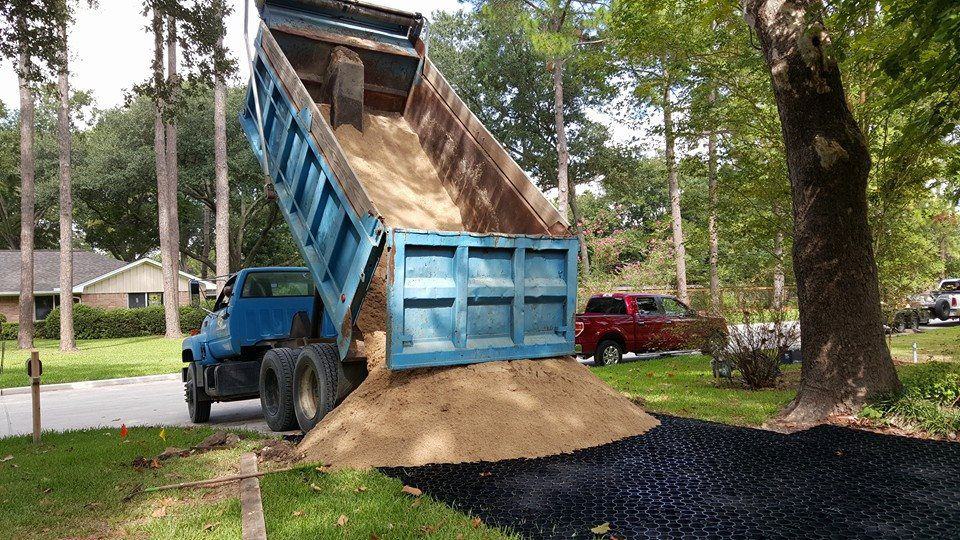
Because of the permeable nature of these interlocking plastic grids and the gravel aggregate fill, they will prevent you from having to do any type of regular driveway maintenance, but you’ll also be free from having to worry about driveway flooding as well.
Low-Maintenance Driveways Can Be Hard to Find
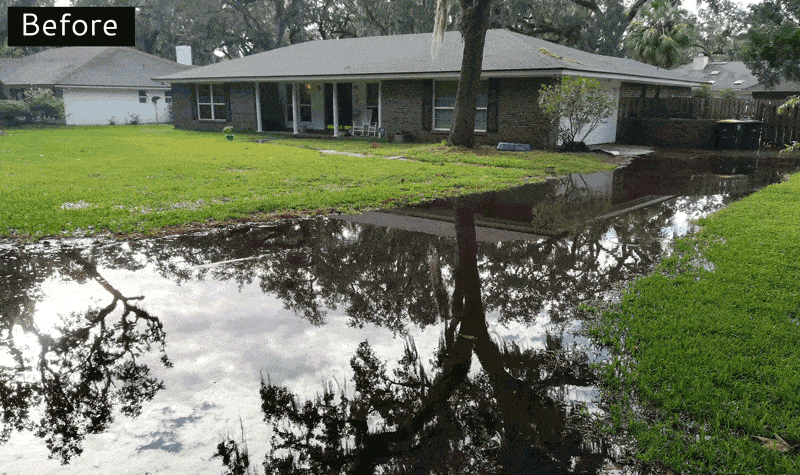
Because of the nature of driveways and how they are used, it’s hard to build one with low-maintenance needs. Concrete and asphalt both require regular maintenance, which really only leaves you with a few options. Concrete grass pavers can work, but if weeds pop up, you’ll be forced to do maintenance.
Paving stones can work as well, but are generally pretty expensive and hard to install. As it stands, the lowest maintenance yet highest performing driveway material out there is permeable paving from a reputable company like TRUEGRID.
TRUEGRID permeable pavers are so easy to install that you can do it yourself without any special equipment. They are made with the most eco-friendly process possible and will last through rain or shine without ever eroding away, becoming misplaced, cracking, collapsing, or experiencing any of the other problems that other common driveway materials have.



